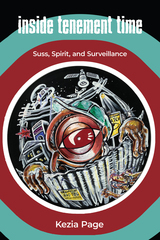116 scholarly books by Omnidawn and 8
start with B
116 scholarly books by Omnidawn and 8
116 scholarly books by Omnidawn
8 start with B start with B
8 start with B start with B
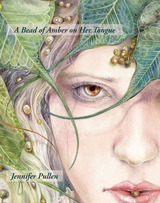
A Bead of Amber on Her Tongue
Jennifer Pullen
Omnidawn, 2019
Helen of Troy and Aphrodite: two classical paragons of beauty and love. These two figures have served as the inspiration for innumerable works of art in the Western cannon. In the twenty-first century, however, what do their stories provide but a reminder of the predictable roles which sexism has assigned women throughout history and literature?
In this fresh new take on the two women’s stories, Jennifer Pullen takes us away from the familiar and deeper into their experiences. Rewriting Homer, Pullen revitalizes these two figures for the contemporary era. In A Bead of Amber on Her Tongue, Aphrodite maintains autonomy through her experience of her own body, even when forced into marriage. Helen of Troy, meanwhile, harbors a love for her maid, Esme, that no conquering hero can vanquish. Revisiting these classic stories with an inventive twist, Pullen shows that, with a little imagination, the classics may yet bear new insights.
In this fresh new take on the two women’s stories, Jennifer Pullen takes us away from the familiar and deeper into their experiences. Rewriting Homer, Pullen revitalizes these two figures for the contemporary era. In A Bead of Amber on Her Tongue, Aphrodite maintains autonomy through her experience of her own body, even when forced into marriage. Helen of Troy, meanwhile, harbors a love for her maid, Esme, that no conquering hero can vanquish. Revisiting these classic stories with an inventive twist, Pullen shows that, with a little imagination, the classics may yet bear new insights.
[more]
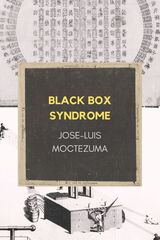
Black Box Syndrome
Jose-Luis Moctezuma
Omnidawn, 2023
Poems that follow systems of chance and divination to counter corrosive financial systems.
Jose-Luis Moctezuma’s Black Box Syndrome is a series of poems—or “black boxes”—based on black hexagrams in the I Ching, an ancient Chinese divination text. Following the aleatoric tradition popularized by the surrealists and extended by the work of John Cage and Jackson Maclow, these poems cast their lenses on the hazards of the incessant financialization of everyday life. Synthesizing chance-operational aesthetics with Aztec anatomical science, conspiracy theory with systems theory, and the black box model with the concept of the “influencing machine,” Black Box Syndrome explores tensions between lyric excess and digital compaction in the age of pandemic. Over and against the corrosive world-shrinking effects of Wall Street risk management and futures trading, the black boxes in this book propose a counter-divination that distorts, deranges, and decolonizes the logic of empire.
Jose-Luis Moctezuma’s Black Box Syndrome is a series of poems—or “black boxes”—based on black hexagrams in the I Ching, an ancient Chinese divination text. Following the aleatoric tradition popularized by the surrealists and extended by the work of John Cage and Jackson Maclow, these poems cast their lenses on the hazards of the incessant financialization of everyday life. Synthesizing chance-operational aesthetics with Aztec anatomical science, conspiracy theory with systems theory, and the black box model with the concept of the “influencing machine,” Black Box Syndrome explores tensions between lyric excess and digital compaction in the age of pandemic. Over and against the corrosive world-shrinking effects of Wall Street risk management and futures trading, the black boxes in this book propose a counter-divination that distorts, deranges, and decolonizes the logic of empire.
[more]

Bloodletting
Kimberly Reyes
Omnidawn, 2025
Poetry that considers the nature of relationships in an age mediated by social media and impacted by violence.
This is a collection of poems about how we find and cultivate love amid wars, including wars that often go ignored. Throughout Bloodletting, Kimberly Reyes considers how we define love and who gets to experience it, paying special attention to the ways that race and sex influence how we are perceived and valued by society. Through the voice of a Black woman coming to terms with her own perspectives on relationship-building, Reyes shows the damage that contemporary culture can do to women, and Black women in particular. Resisting passivity, Reyes’s poetry cuts through pervasive doom scrolling, virtue signaling, and parasocial relationships, inviting readers to remember what care is really supposed to feel like.
This is a collection of poems about how we find and cultivate love amid wars, including wars that often go ignored. Throughout Bloodletting, Kimberly Reyes considers how we define love and who gets to experience it, paying special attention to the ways that race and sex influence how we are perceived and valued by society. Through the voice of a Black woman coming to terms with her own perspectives on relationship-building, Reyes shows the damage that contemporary culture can do to women, and Black women in particular. Resisting passivity, Reyes’s poetry cuts through pervasive doom scrolling, virtue signaling, and parasocial relationships, inviting readers to remember what care is really supposed to feel like.
[more]
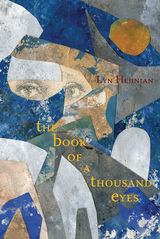
The Book of a Thousand Eyes
Lyn Hejinian
Omnidawn, 2012
Written over the course of two decades, The Book of a Thousand Eyes was begun as an homage to Scheherazade, the heroine of The Arabian Nights who, through her nightly tale-telling, saved her culture and her own life by teaching a powerful and murderous ruler to abandon cruelty in favor of wisdom and benevolence. Hejinian’s book is a compendium of “night works”—lullabies, bedtime stories, insomniac lyrics, nonsensical mumblings, fairy tales, attempts to understand at day’s end some of the day’s events, dream narratives, erotic or occasionally bawdy ditties, etc. The poems explore and play with languages of diverse stages of consciousness and realms of imagination. Though they may not be redemptive in effect, the diverse works that comprise The Book of a Thousand Eyes argue for the possibilities of a merry, pained, celebratory, mournful, stubborn commitment to life.
[more]
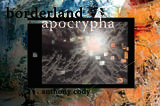
Borderland Apocrypha
Anthony Cody
Omnidawn, 2019
The 1848 Treaty of Guadalupe Hidalgo marked an end to the Mexican—American War, but it sparked a series of lynchings of Mexicans and subsequent erasures, and long-lasting traumas. This pattern of state-sanctioned violence committed towards communities of color continues to the present day. Borderland Apocrypha centers around the collective histories of these terrors, excavating the traumas born of turbulence at borderlands. In this debut collection, Anthony Cody responds to the destabilized, hostile landscapes and silenced histories of borderlands. His experimental poetic reinvents itself and shapeshifts in both form and space across the margin, the page, and the book in forms of resistance, signaling a reclamation and a re-occupation of what has been omitted. The poems ask the reader to engage in searching through the nested and cascading series of poems centered around familial and communal histories, structural racism, and natural ecosystems of borderlands. Relentless in its explorations, this collection shows how the past continues to inform actions, policies, and perceptions in North and Central America.
Rather than a proposal for re-imagining the US/Mexico border, Cody’s collection is an avant-garde examination of how borderlands have remained occupied spaces, and of the necessity of liberation to usher the earth and its people toward healing. Part auto-historia, part docu-poetic, part visual monument, part myth-making, Borderland Apocrypha unearths history in order to work toward survival, reckoning, and the building of a future that both acknowledges and moves on from tragedies of the past.
Borderland Apocrypha won Omnidawn's 2018 1st/2nd Book Prize.
Rather than a proposal for re-imagining the US/Mexico border, Cody’s collection is an avant-garde examination of how borderlands have remained occupied spaces, and of the necessity of liberation to usher the earth and its people toward healing. Part auto-historia, part docu-poetic, part visual monument, part myth-making, Borderland Apocrypha unearths history in order to work toward survival, reckoning, and the building of a future that both acknowledges and moves on from tragedies of the past.
Borderland Apocrypha won Omnidawn's 2018 1st/2nd Book Prize.
[more]

Both, Apollo
Mary Wilson
Omnidawn, 2022
A poetry collection that employs intuition, humor, and celebration while seeking to break out of restrictive social structures.
Mary Wilson’s Both, Apollo speaks from inside the bodies and binaries that so often act as constraints. It sometimes tries to negotiate its way out. It laments, celebrates, reasons, jokes, and occasionally begs. It runs into a wall and hugs it, offers it pizza, and speeds through grammars and cities until dizziness catapults it from the grid. It tries to queer the echoes of its language in the hope that a rhyme might break the logic of “either/or” and give rise to “both/and.”
Both, Apollo is a love poem to whatever has the grace to appear, quietly finding hope. Moments of humor and tenderness accompany the speaker with each act of crossing and circling back. The poems in Both, Apollo are constantly in flux, and Wilson’s lyricism acts as a teaching tool for using both the real and the imagination to guide us in moment-by-moment navigation of our world.
Both, Apollo won the Omnidawn Chapbook contest, selected by Victoria Chang.
Mary Wilson’s Both, Apollo speaks from inside the bodies and binaries that so often act as constraints. It sometimes tries to negotiate its way out. It laments, celebrates, reasons, jokes, and occasionally begs. It runs into a wall and hugs it, offers it pizza, and speeds through grammars and cities until dizziness catapults it from the grid. It tries to queer the echoes of its language in the hope that a rhyme might break the logic of “either/or” and give rise to “both/and.”
Both, Apollo is a love poem to whatever has the grace to appear, quietly finding hope. Moments of humor and tenderness accompany the speaker with each act of crossing and circling back. The poems in Both, Apollo are constantly in flux, and Wilson’s lyricism acts as a teaching tool for using both the real and the imagination to guide us in moment-by-moment navigation of our world.
Both, Apollo won the Omnidawn Chapbook contest, selected by Victoria Chang.
[more]

boy
Consuelo Wise
Omnidawn, 2024
A hybrid book-length poem in which the protagonist grapples with a great loss.
In this hybrid of lyric poetry and essay, Consuelo Wise utilizes repetition, fragmentation, and syntax to construct a form that repeatedly falls apart. Breaks in lines and fragmented stanzas are followed by accumulative rushes, slashes, brackets, and words pushed together.
Throughout this book-length poem, Wise composes a meditation and an investigation into loss and identity. Moving between sound and image, aggression and subtlety, b o y pries open memories that resist understanding but also refuse to be forgotten. Wise peels back layers of mourning, considering how it can be experienced as a personal, inherited, environmental, social, and historical phenomenon. Throughout, the protagonist in b o y reenvisions ways to process a great loss, listening closely and searching for words while “the earth is shaking and the silence pressing down.”
In this hybrid of lyric poetry and essay, Consuelo Wise utilizes repetition, fragmentation, and syntax to construct a form that repeatedly falls apart. Breaks in lines and fragmented stanzas are followed by accumulative rushes, slashes, brackets, and words pushed together.
Throughout this book-length poem, Wise composes a meditation and an investigation into loss and identity. Moving between sound and image, aggression and subtlety, b o y pries open memories that resist understanding but also refuse to be forgotten. Wise peels back layers of mourning, considering how it can be experienced as a personal, inherited, environmental, social, and historical phenomenon. Throughout, the protagonist in b o y reenvisions ways to process a great loss, listening closely and searching for words while “the earth is shaking and the silence pressing down.”
[more]
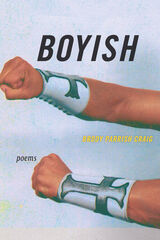
Boyish
Poems
Brody Parrish Craig
Omnidawn, 2021
The poems in Boyish reveal a reconciliation of southern and queer identities, following the poet from a Louisiana Baptist upbringing into transgender liberation. With a sense of rebellion and the revival of the hollered voice, this is an urgent narrative propelled by the necessity of upheaval, imagining what happens when we break through barriers of systemic violence and communal oppression to reconsider what could be. Boyish looks back at the status quo in order to move beyond, into a dream of a nonbinary utopia. A reckoning, this collection brings the reader along for revolution—a deep belief in possibility.
Each page builds tension that then shatters, bringing us into the interior of a story. Brody Parrish Craig invites us to carve out a space and to find ourselves carried over the gravel along the creek. Moving through the subconscious and embodied desire, these poems are rich with formal play, twisting language in dense sonnets. Landscapes of the city’s dystopia meet the queer pastoral, where conservation often means knowing what must be burned down.
Each page builds tension that then shatters, bringing us into the interior of a story. Brody Parrish Craig invites us to carve out a space and to find ourselves carried over the gravel along the creek. Moving through the subconscious and embodied desire, these poems are rich with formal play, twisting language in dense sonnets. Landscapes of the city’s dystopia meet the queer pastoral, where conservation often means knowing what must be burned down.
[more]
READERS
Browse our collection.
PUBLISHERS
See BiblioVault's publisher services.
STUDENT SERVICES
Files for college accessibility offices.
UChicago Accessibility Resources
home | accessibility | search | about | contact us
BiblioVault ® 2001 - 2024
The University of Chicago Press



